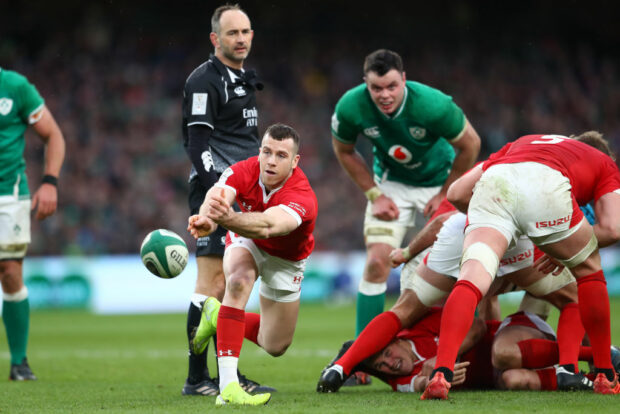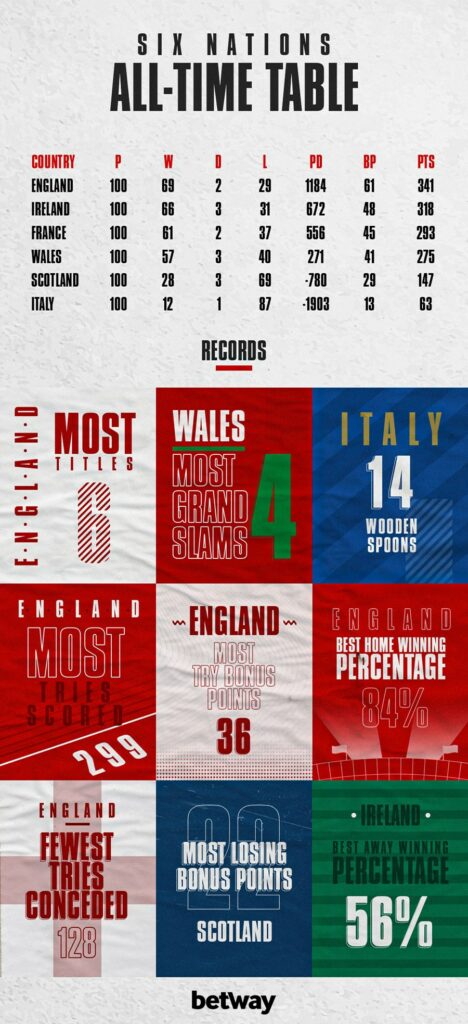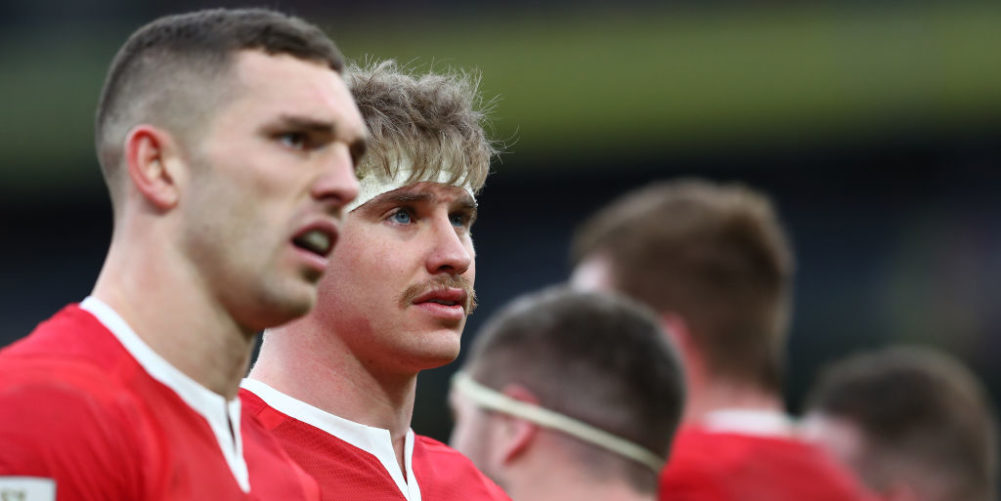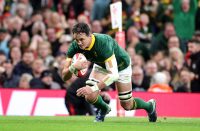Storm Ciara might not have arrived in time for the game, but Ireland’s back row whipped up their own mayhem to condemn Wales to their first Six Nations defeat in nine outings. The dream of back-to-back Grand Slams may be over, but Wayne Pivac and his coaching team will have learned far more from this performance than they did from the big win over Italy.
Wales could have won, but weren’t really good enough to do so. The lesson to everyone connected with the side is that if you don’t take your chances at this level, you aren’t going to win.
Much was made of the scrum in the 42-0 win over Italy. When the players and coaches review the tape of this Dublin defeat, the pictures won’t be as rosy.
There weren’t as many dominant tackles and there were more missed tackles, too. The other difference was that Wales defended very narrowly and were caught out on the flank in the opening exchanges and then late on when Andrew Conway scored in the corner.
Nick Tompkins found life a lot tougher on his first start than he did on his new home soil the previous weekend and he struggled with the physicality of Robbie Henshaw in the first half.
He also missed a crucial tackle on Jordan Larmour who scored Ireland’s first try.
Credit to him, though, he came back with a much better second half showing and will have learned a lot from the experience of playing against one of the best teams in the world.
And that’s the point. The Irish are right up there in the world rankings once again, yet Wales could still have got much closer, or even snuck it at the death, if everything had gone right.
The Hadleigh Parkes try that wasn’t would have made a big difference while the referee’s interpretation of the collapsed scrum in the shadow of the Irish posts was the biggest turning point in the game. If Wales had scored then, there would have been a very good chance of them winning.
Romain Poite claimed Dillon Lewis was guilty of collapsing the set-piece, but the smile on Dave Kilcoyne’s face after his side got the penalty told the other side of the story.
Kilcoyne had nothing to lose and seemed to be trying to take it down to buy a penalty and was successful in doing exactly that. He got his team out of trouble.
In general, the Welsh scrum was very solid and they reaped the rewards of their discipline in doing what the referee asked of them in pushing straight.
That was a positive after the scrum struggled against Italy. The line-out wasn’t too bad given how tricky the wind made conditions and the penalty count was low.
CJ Stander was a colossus in the Irish back row and was largely responsible for Wales being turned-over 13 times. The Munster No.8 was quite rightly made man of the match for the second week in a row and it was only when he went off at the end of the game that Wales were able to grab their second try through Justin Tipuric. Still, that had only come after Conway had given Ireland a bonus point which I know would have been a big dent to the Welsh pride after a tough afternoon.
What was good to see was Wales’ attitude to try to play whenever they got quick ball. The try that Tomos Williams scored was a cracker and owed as much to the deftness of hands from second row and skipper Alun Wyn Jones as it did to the initial work of the half-backs.

The skipper came up with a number of trademark offloads, but there were others from fellow forwards as the Pivac way started to emerge.
With slightly more possession there looks to be enough pace, power and panache in this Welsh back line to do some real damage.
The only problem was the number of individual errors Wales made in their attempt to play. Some people will point to the new style of play Pivac is trying to play as a reason for this, but I don’t think that’s the case. For example, Tomos dropped a simple pop from Alun Wyn following a line-out on the Welsh line and that led directly to Tadhg Furlong’s second try for Ireland. Those sorts of individual errors simply can’t be legislated for.
Ultimately, you can’t do things like that and expect to win Test matches regardless of what style of rugby you want to play.
Now Wales have to look ahead to France.
Thank heavens for the two-week gap between rounds two and three because by the time the French arrive in Cardiff, hopefully both Josh Adams and Dan Biggar will be fit to resume after their injuries. Josh limped out of the game after only 25 minutes with a bang on the hip while Dan went off 20 minutes later for a head injury assessment and didn’t return.
Perhaps Josh knew something we didn’t because his fellow wing, George North, didn’t get a pass until the 73rd minute.
Josh might have gone looking for a bit more action, but the lack of activity on the Welsh flanks – and their susceptibility in defence – was probably a reflection on the lack of possession they gained in attacking areas.
There is plenty to work on, but at least now this group has some proper reference points. They have all celebrated victory and suffered defeat together and will better understand each other as a result. There are potentially two even bigger games coming up with France and England and there should be belief there that Wales can still win the title.
SHANE WILLIAMS

This Six Nations infographic was provided courtesy of Betway.























